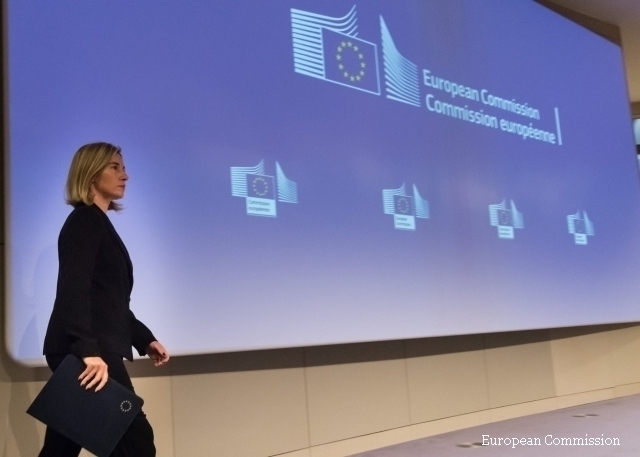Global Cooperation and Security Plan
EU foreign and defence ministers green-light global strategy for the blocs security and defence policy

Florentin Căpitănescu, 15.11.2016, 13:47
Having seen its presence and influence significantly reduced in the international community, following the economic and financial crisis, the European Union seems to be trying to adapt to the times, including in terms of defence. Two months ago, it established an external border monitoring and control agency, with extended powers, to replace Frontex, and now, with the endorsement of its global strategy on the security and defence policy, the Union has made a further step in this direction. The implementation plan on security and defence is the outcome of an older initiative, which the European foreign and defence ministers convening in Brussels on Monday turned into an operational project. Here is the Radio Romania correspondent in the Belgian capital city, Claudia Marcu, with details:
Claudia Marcu: “The EU foreign policy chief Federica Mogherini described the implementation plan on security and defence as ambitious, pragmatic, substantial, concrete, and prepared in a record time with the full involvement of the 28 member states. The EUs High Representative for foreign policy and security pointed out, first and foremost, that this plan meant neither the establishment of a European army, nor the competition or duplication of NATO. The implementation plan is about providing the EU with all the instruments it needs to fulfil its ambitions, and outlines 3 key tasks for Europe: responding to external conflicts and crises, working with partners in building their security and defence capabilities, and protecting the Union and its citizens.
In other words, the project is not a threat to the contribution undertaken by EU member states within NATO, but rather complementary to the current actions and future objectives of the North Atlantic Alliance.
On the other hand, the Plan may be seen as a natural response of the Union to an unpredictable international context, in which the geopolitical element plays a key role. Russias aggressive foreign policy, pursued even at a military level, with the annexation of the Ukrainian peninsula of Crimea and with Moscows active involvement in the secessionist conflict in east Ukraine, the instability in north Africa, following the Arab spring, the growing tensions straining the relations with Turkey and, above all, the insecurity engendered by terrorism, are all unsettling elements for the EU. Furthermore, a number of foreign policy analysts argue that Europes economic power must be accompanied by a matching military potential, even if this comes against the paradigm embraced after World War II.






























